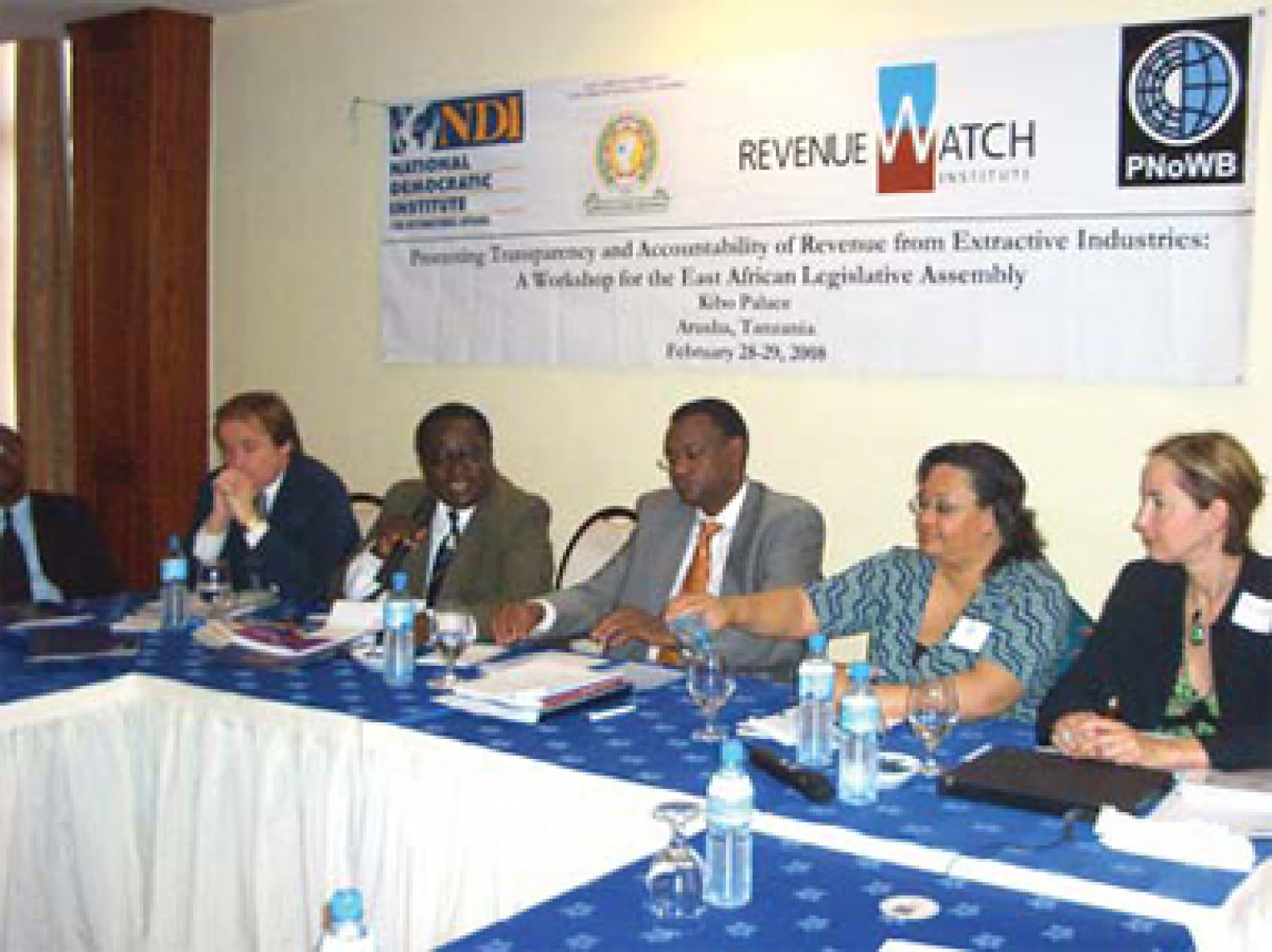
SHARE
Decades-long misuse and mismanagement of oil and mining revenues have fueled devastating spirals of corruption, conflict and poverty in many resource-rich countries. Some international efforts, such as the Extractive Industry Transparency Initiative (EITI) and the Publish What You Pay (PWYP) Campaign, are focusing on these problems through partnerships between industry, government and civil society. But many legislatures, particularly in Africa, are not addressing this critical area - despite the lawmaking and oversight responsibilities that make them uniquely placed to do so.
To assess the ability of legislatures to promote transparency and accountability in this key sector, NDI conducted research in nine African countries -- Angola, Botswana, Chad, the Republic of Congo, the Democratic Republic of the Congo, Ghana, Nigeria, Sierra Leone and South Africa. NDI reviewed legal and other documents and interviewed members of parliament, ministerial officials, and representatives from the private sector, multilateral agencies, and donor and non-governmental organizations. These activities led to the publication, last August, of Transparency and Accountability in Africa's Extractive Industries: The Role of the Legislature. The report summarizes the challenges legislators face in overseeing oil and mining industries, highlights best practices, and offers recommendations for greater engagement and coordination by legislators, civic groups and the international community.
In February, NDI presented the report's best practices and recommendations to the East African Legislative Assembly (EALA) at a workshop in Arusha, Tanzania, conducted in partnership with the EALA, the Revenue Watch Institute (RWI) and the Parliamentary Network of the World Bank (PNoWB). The EALA is the independent legislative arm of the East African Community, a regional intergovernmental organization that represents Burundi, Kenya, Rwanda, Tanzania and Uganda. The workshop participants included EALA members and staff; legislators from Tanzania, Kenya and Uganda; industry and legal experts; international representatives; and regional civil society leaders.
Two lively days of deliberations were set against a backdrop of actual events, including ongoing negotiations over the management of oil deposits in Uganda, a government review of Tanzania's mining sector, and the anticipated construction of an oil pipeline between Uganda and Kenya. The workshop ended with the adoption of a 21-point resolution to serve as a blueprint for greater legislative engagement at the regional and national levels in managing industry revenues.
The Institute plans to support the EALA recommendations with technical support for the launch of a regional forum of extractive industry representatives from government, civil society and the private sector; assistance to improve legislation on industry management; and by facilitating contacts between EALA representatives and legislators from EALA member countries with counterparts from countries that have joined the EITI process.
–
Published on July 7, 2008


